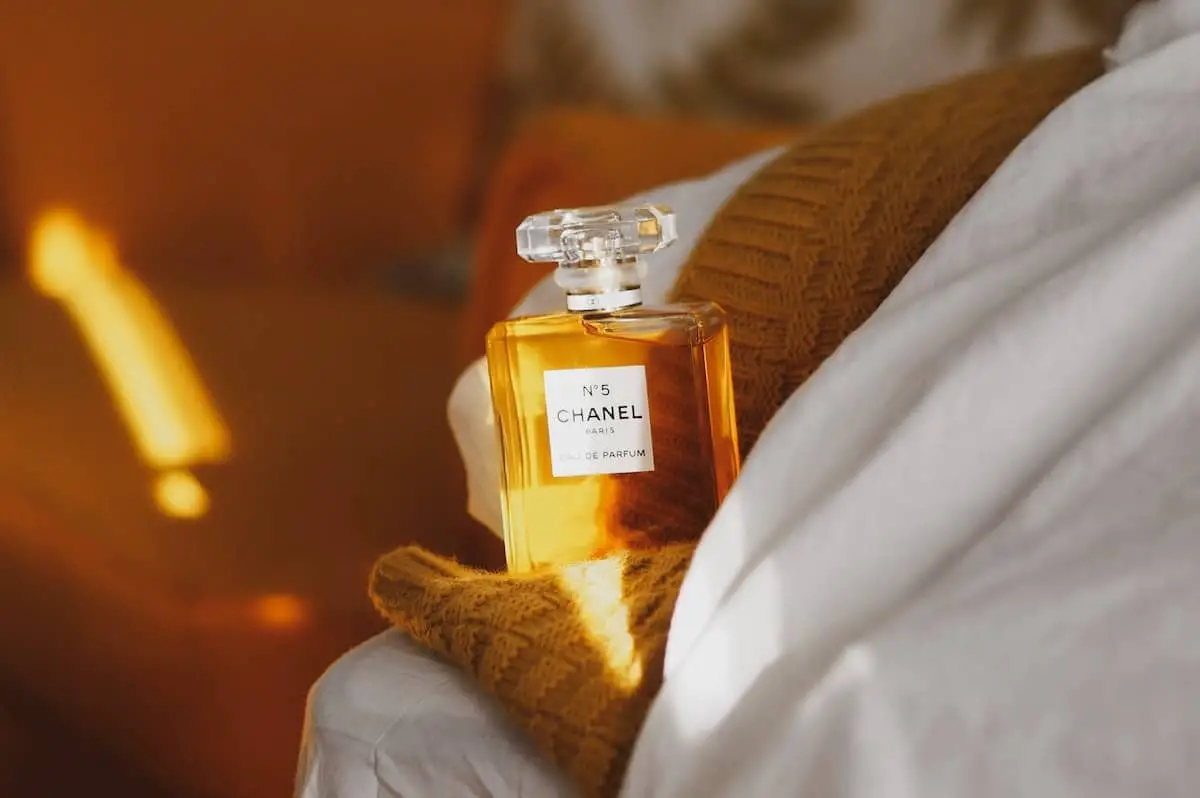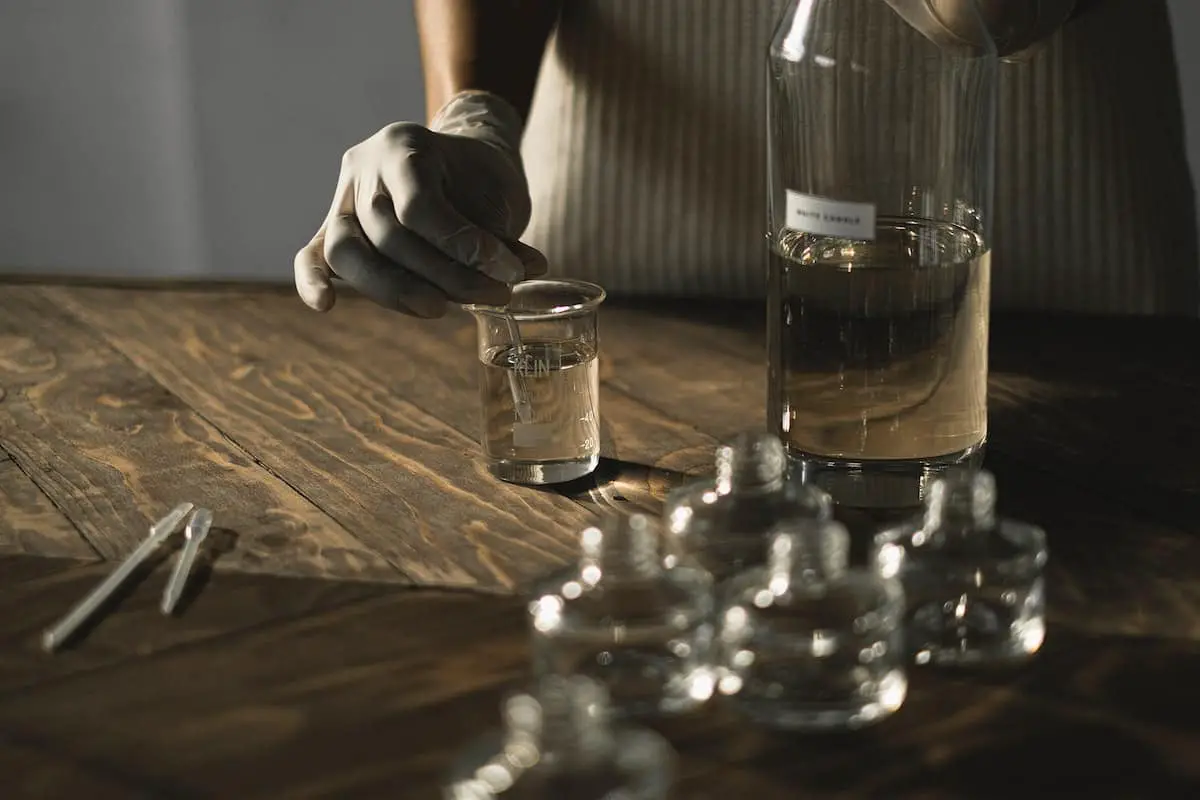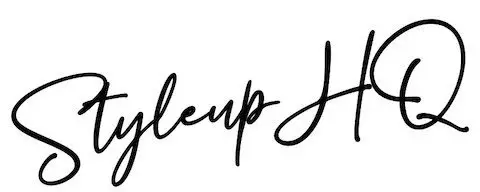Eau de Toilette vs Eau de Parfum: 7 Key Differences Explained!
When you are purchasing a perfume, you will notice that it is often labeled as either Eau de Toilette or Eau de Parfum among other terms. It is important to understand what these terms mean, how one type of perfume differs from the other, and which one should you purchase so that you ensure that you buy the correct perfume type!
The key difference between Eau de Parfum and Eau de Toilette is in the concentration of fragrance oil used. Eau de Parfum usually contains about 15-20% concentration of the fragrance oil whereas Eau de Toilette contains about 5-15%. Eau de Parfum also usually costs more and lasts longer.
But, just because Eau de Parfum lasts longer, it may not be a better choice for you. So, in this article, we shall take a look at all the differences between the two perfume types and answer some of the questions that you may have!
So, let’s get started!
Key Differences Between Eau de Parfum and Eau de Toilette
Before we jump into understanding the differences between the two, let us first quickly understand what do the terms Eau de Parfum and Eau de Toilette stand for.
Eau de Parfum

Eau de Parfum is actually a French term that literally translates to “Perfume Water”. It is a type of perfume that is mostly stronger than most other fragrances as it contains about 15-20% concentration of essential oil.
Consumers usually consider Eau de Parfum when they are looking for a stronger scent. I wrote a whole article on Eau de Parfum showcasing how it compares to other perfume types. Make sure you check out that article for complete details.
Eau de Toilette
Eau de Toilette is a much weaker fragrance type than an Eau de Parfum. It contains a much lower concentration of the essential oil used; typically between 5-15%. But, it is also usually cheaper than Eau de Parfum. We’ll learn more about the price differential later in the article.
Eau de Toilette is also a French term. It actually translates into “Toilet Water”! But, it is not quite what it sounds like. I actually wrote an article about why perfume is called toilet water covering the history and the evolution of the term in detail. I’m sure you will find it really interesting, so make sure you give it a read!
I’ve also written a separate article detailing everything that you need to know about Eau de Toilette. So, make sure you check that out as well!
Now that we have a base understanding of the two terms, let us further understand the difference between the two perfumes:
1. Essential Oil Concentration
By now, you may have already understood that the number one difference between the two types of fragrances is in the concentration of the essential oil used in the two fragrances.
I may sound like a broken record, but I guess this is the most important factor to remember! Eau de Parfum has a higher concentration of the fragrance than an Eau de Toilette.
One thing to understand is that the essential oil concentrations mentioned are a generally accepted range. There is no legal obligation for a perfume brand to stick to these ranges when designing a particular type of perfume. A perfume brand is at complete liberty to use a lower concentration of essential oil and yet call it an Eau de Parfum!
So, it doesn’t necessarily mean that Eau de Parfum is the right choice for you! Thus, let’s understand the other differences as well.
2. Longevity
Since Eau de Parfum typically contains a higher concentration of essential oil, it usually tends to last longer than Eau de Toilette.
Typically, an Eau de Parfum will last about 6-12 hours when applied to the skin. While most Eau de Parfum fragrances will last mostly on the lower side of this range (so, 6 to 8 hours is almost a given), however, some Eau de Parfum fragrances last up to 12 hours or even longer!
On the contrary, Eau de Toilette will generally last about 4-8 hours when applied to the skin. That is still good enough to usually last the whole day!
3. Performance
There is a subtle but important difference between the performance and the longevity of a perfume.
The performance of a perfume is usually defined by the sillage (perfume trail left behind when a person walks through the room) and the perfume radius (the distance a scent travels). Thus, a perfume may last long but may have a poor sillage or perfume radius!
Eau de Toilette tends to be stronger in performance for the first 15 to 30 minutes. However, Eau de Parfum will usually give a better overall performance over the duration of its use throughout the day.
It is hard to differentiate between Eau de Toilette and Eau de Parfum on the performance since there are multiple factors that are involved. However, a major factor that does determine the performance of a perfume is the notes of a perfume.
Typically, Eau de Toilette is top-note heavy. This gives the perfume a strong projection initially. Whereas, Eau de Parfum is usually mid to base note heavy. This allows it to last longer and give consistent performance over time.
Thus, it is safe to assume that generally speaking, you will get better overall performance from Eau de Parfum than Eau de Toilette.
4. Composition & Smell

Another differentiating factor between the two types of perfume in consideration is the composition of the perfume itself.
If you’re looking at Eau de Parfum and Eau de Toilette of just a single perfume line of a perfume brand such as Dior Poison (Dior being the brand and Poison being the perfume line of the brand), you will notice that the composition of the two will sometimes vary.
Furthermore, Eau de Toilette not only contains a lower concentration of essential oils, but the composition also contains more alcohol and water content.
Higher alcohol content means that the smell of two perfumes is also going to most certainly vary albeit just marginally. This is because alcohol itself has its own smell and the reduction of oil concentration coupled with the increase in alcohol content produces a slightly different scent.
Thus, the Eau de Parfum and Eau de Toilette will usually differ in both composition and smell. It is hard to tell which one will smell better (as to whether a scent is good or bad is quite subjective), but it will definitely be different.
5. Aging
You may be surprised to know but perfumes age as well. Meaning, over time, it will weaken, evaporate or discolor. Unlike wine or alcohol, perfume aging is not a good thing.
There are several factors that influence the aging process of perfume such as exposure to light, humidity, heat, method of storage, and method of application of a perfume. The interaction of perfume molecules with the above-mentioned factors can speed up the aging process.
However, if all these factors are kept consistent for both Eau de Parfum and Eau de Toilette, Eau de Toilette will last longer since it contains a higher amount of alcohol. Alcohol in a perfume acts as a protective layer and a higher alcohol content means that perfume is more likely to last longer.
Generally speaking, a perfume may last about 3 to 4 years in a bottle. It is also important to note that even Eau de Toilette may last longer, the difference is usually minor in comparison and it should not be a factor to influence your purchasing decision.
6. Price of the Perfume
Another major difference between Eau de Parfum and Eau de Toilette is the price at which it is available!
In general, Eau de Parfum has a higher price in comparison to Eau de Toilette of the same perfume brand and perfume line. Eau de Parfum usually contains a higher concentration of essential oils and gives better performance. Thus, the price of Eau de Parfum is higher.
The price of an Eau de Parfum of a certain brand can vary significantly from an Eau de Parfum of another brand. The same is the case with Eau de Toilette of a particular brand when compared to another.
Thus, it is never a good idea to compare an Eau de Toilette of one brand to Eau de Parfum of another brand. You will almost never be able to justify your decision as it’s an apple to oranges type of comparison!
7. When to Wear
Another difference between Eau de Toilette and Eau de Parfum is when to wear it!
Certain fragrances perform better during the colder weather of the winters or during the nighttime. Whereas, other fragrances do well during the summer heat.
Then, there are those such as Dior Sauvage (Eau de Parfum) that hit home base all year round no matter what season, daytime or nighttime! It is just an awesome all-round performer.
In general, Eau de Toilette is more suited for summertime or during the daytime. This is because Eau de Toilette is usually top note heavy which gives a better result during the summer time. On the other hand, Eau de Parfum will give its best performance during the winter season or when the temparture is not too hot!
This is not a hard distinction. Whether a perfume performes better during winter time or summer time is not directly linked to the type of perfume. So, it doesn’t mean an Eau de Toilette will perform poorly during winter and vice-versa for Eau de Parfum. But, in general, you will notice this as a trend.
So, if you are not experienced yet with the notes or knowing how to pick your perfume, consider what time of the year (or day) you want to wear the perfume, and go with an Eau de Toilette or an Eau de Parfum accordingly.
Alternatively, you can also choose perfumes that give all-round performance such as Dior Sauvage, Aqua Di Gio Profumo, Blue de Chanel or a more affordable alternative like Versa Pour Homme Dylan Blue
Should You Buy Eau de Parfum or Eau de Toilette?
It is difficult to have a straight answer to this question as there are so many variables involved. Over and above the variation in the fragrances from one brand to another, personal choice is something that is difficult to account for.
Depending on what you are looking for in a perfume, you choice will vary. That said, I will try my best to lay certain scenarios along with my recommendations for those scenarios. You can see which one you fit into.
- Budget No Bar – If budget is not a constraint, then surely go for an Eau de Parfum. It will almost always be a better choice!
- Long Lasting Perfume – If you just want to spray the perfume once in the morning and be done with it, Eau de Parfum will be a better choice
- Strong Projection – If you are the kind of person who doesn’t mind spraying the perfume few times a day to get that fresh feel every time, then Eau de Toilette would generally be a better option for you!
- Sensitive Skin – Neither! If you have a sensitive skin, don’t choose either of the two options. The alcohol content in both these fragrances is high enough to make your skin dry and irritable. Instead, you should be looking for an Eau Fraiche! (click on to learn everything I think you should know about Eau Fraiche)
A few things to remember when choosing between Eau de Parfum and Eau de Toilette –
- If Eau de Parfum is what you want to buy (and brand is not a concern) but the budget is a constraint, then you can always find a good perfume from an alternative brand for a cheaper price. Don’t let that
- Don’t compare Eau de Parfum from one brand to an Eau de Toilette of another brand. This is fruitless as the composition, price and performance will vary significantly.
- Likewise, it doesn’t make sense to compare Eau de Parfum to an Eau de Toilette of different perfumes within the same brand for the same reasons. For instance, you don’t want to compare Eau de Toilette variant of Chanel Chance Eau Tendre to an Eau de Parfum version of Chanel no. 5!
More Related Topics –
- Cologne vs Perfume: What’s the Difference?
- Difference between Eau de Toilette and Eau de Cologne
- What is the Difference between Parfum and Eau de Parfum?
- What is Perfume Extract? [And Should You Buy It!]
Credit to Valeria Boltneva (on Pexels) for the Featured Image of this Article

![Apple Watch Keeps Locking? [Here’s an EASY Fix!]](https://styleuphq.com/wp-content/uploads/2022/08/seoul-05-02-2022-male-hand-with-apple-watch-clo-2022-03-12-04-16-48-utc-1067x800.webp)
![Is Perfume a Liquid or Gas? [Here’s What You Should Know!]](https://styleuphq.com/wp-content/uploads/2021/12/laura-chouette-rZNWXG88OOs-unsplash.webp)

![How Long Does Apple Watch Take to Charge? [Complete Guide!]](https://styleuphq.com/wp-content/uploads/2022/05/Depositphotos_411188904_XL-Apple-Watch-Charging-1.webp)
![Does Apple Watch Face Turn Off? [Here’s How to Do It!]](https://styleuphq.com/wp-content/uploads/2022/05/Apple-Watch-Band--1006x800.webp)
